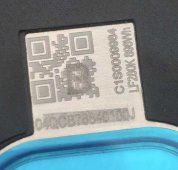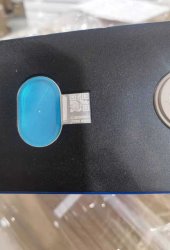One wonders though... say you make XAh cells. Statistically, σ% of your cells turn out to have σ% less capacity. You could make them X+σ (+Y% for safety) and sell them for X. The result would be... all your cells meet or exceed capacity expectations.
Marketing-wise, it would well pay for the added expense, wouldn't it?
But then, manufacturers do (or tend to) not think that way. Marketing people do.
Maybe if manufacturers listened a bit more to marketing people, instead of always having to be the other way around... :·)
-
Cells are not money, more does not mean better.
The most important thing in a battery is the consistency of many cells.
If a battery has 4 cells, 3 cells have 285Ah, and 1 cell has 290Ah, all other parameters are the same. Then which cell is better?
Compare cell by cell, you may think 290Ah cell is better.
But, cells don't work alone, you have to put them in series or parallel.
In the above battery, the 290Ah cell is the bad one, this cell makes the battery unbalanced.
You can only judge a cell (without defects) as good or bad when it is in a group.
What is Grade A+, Grade A Grade A-, or Grade B? No agreed definition at all. Ambiguous definition causes meaningless debate.
Cells are not clothes, they are not made in bulk and go to a warehouse and sold to different customers.
Cells are made on-demand. According to the CATL datasheet, when a downstream company put an order to CATL, they should tell CATL the project design and BMS parameters, CATL will make cells according to these parameters. Then cells are sorted according to a standard, some cells which do not meet standards will be left. The downstream company is not allowed to modify project design or BMS after cells are made, otherwise, CATL will not provide any warranty. These are "Grade A" cells if we insist to give cells a grade.
Then what about the cells left. Are they bad cells? The answer is Yes and No.
Some cells are indeed bad cells with defects, such as too high IR or self-discharging rate. These cells will not go to market usually.
Some cells are good cells, they just cannot be put into that big "Grade A" group according to that specific standard for that specific project. Sometimes because they are too good, such as capacity is too high. These are “grade A-” or “grade B” cells. They will be sold to the distributor in bulk. Manufacturers will not provide any warranty, this is why many CATL cells have scratched QR.




